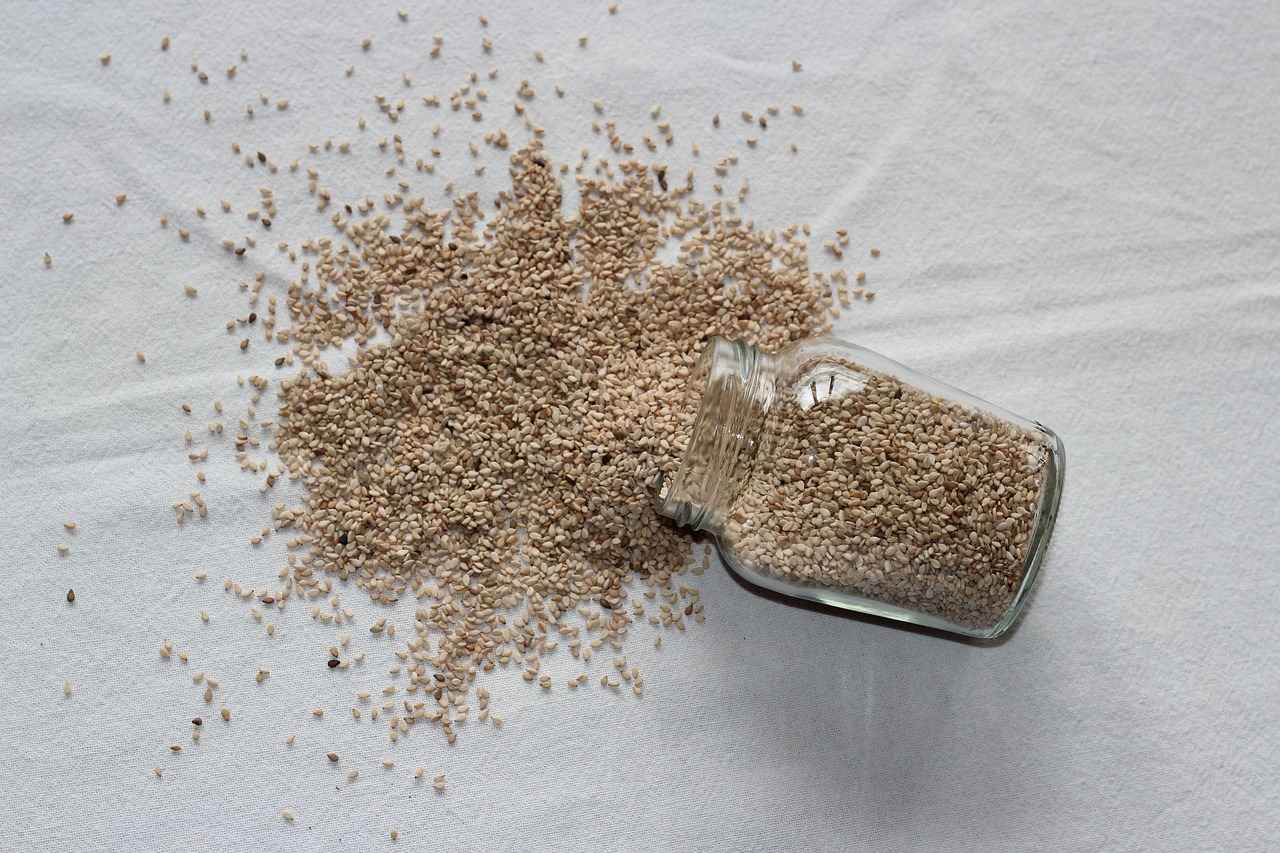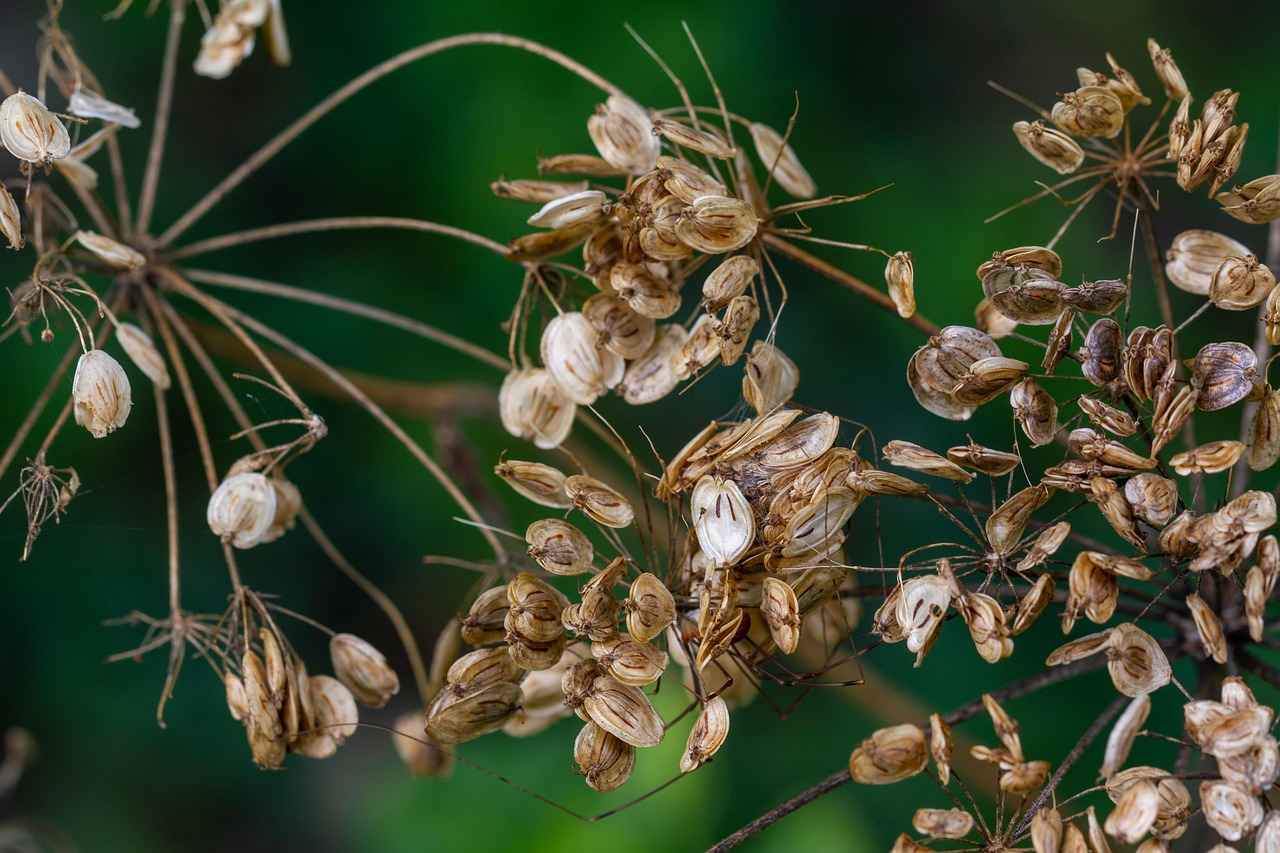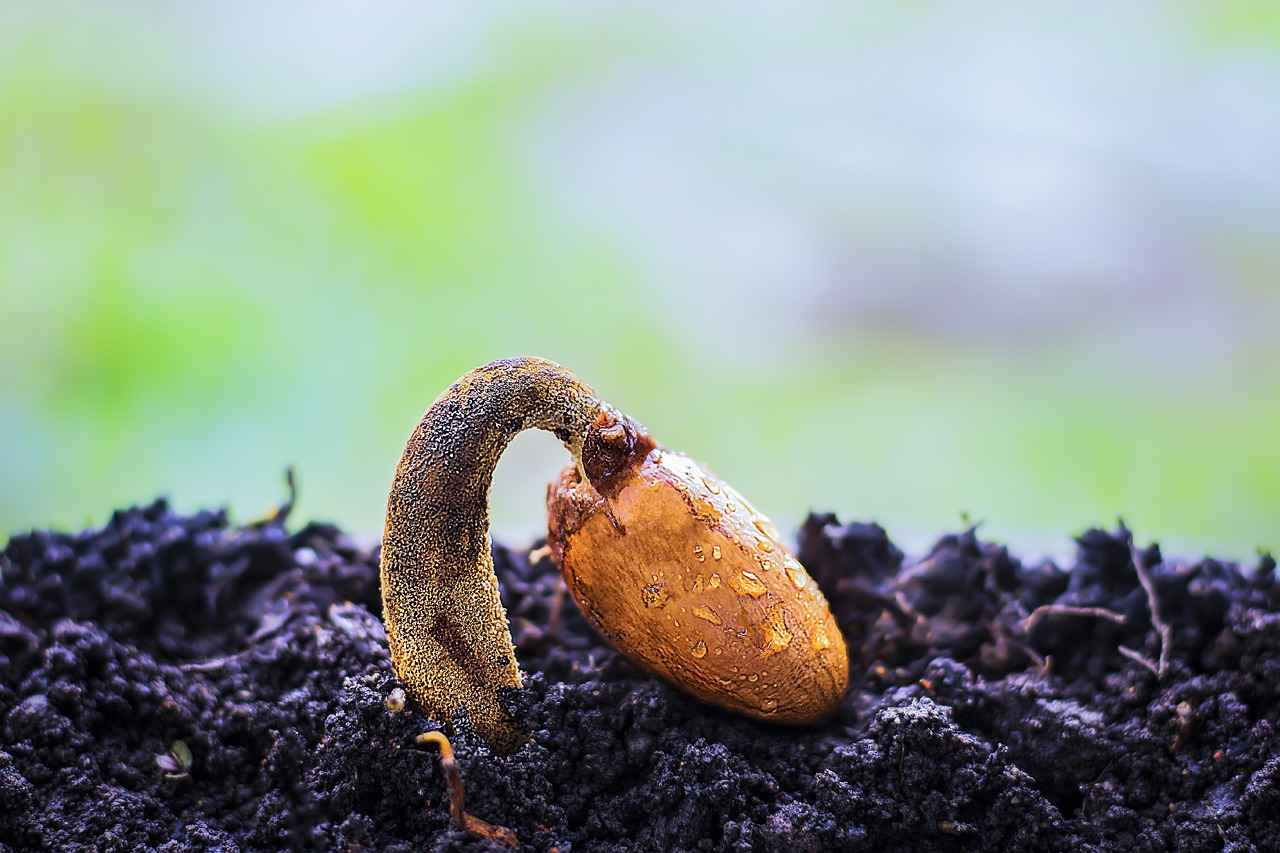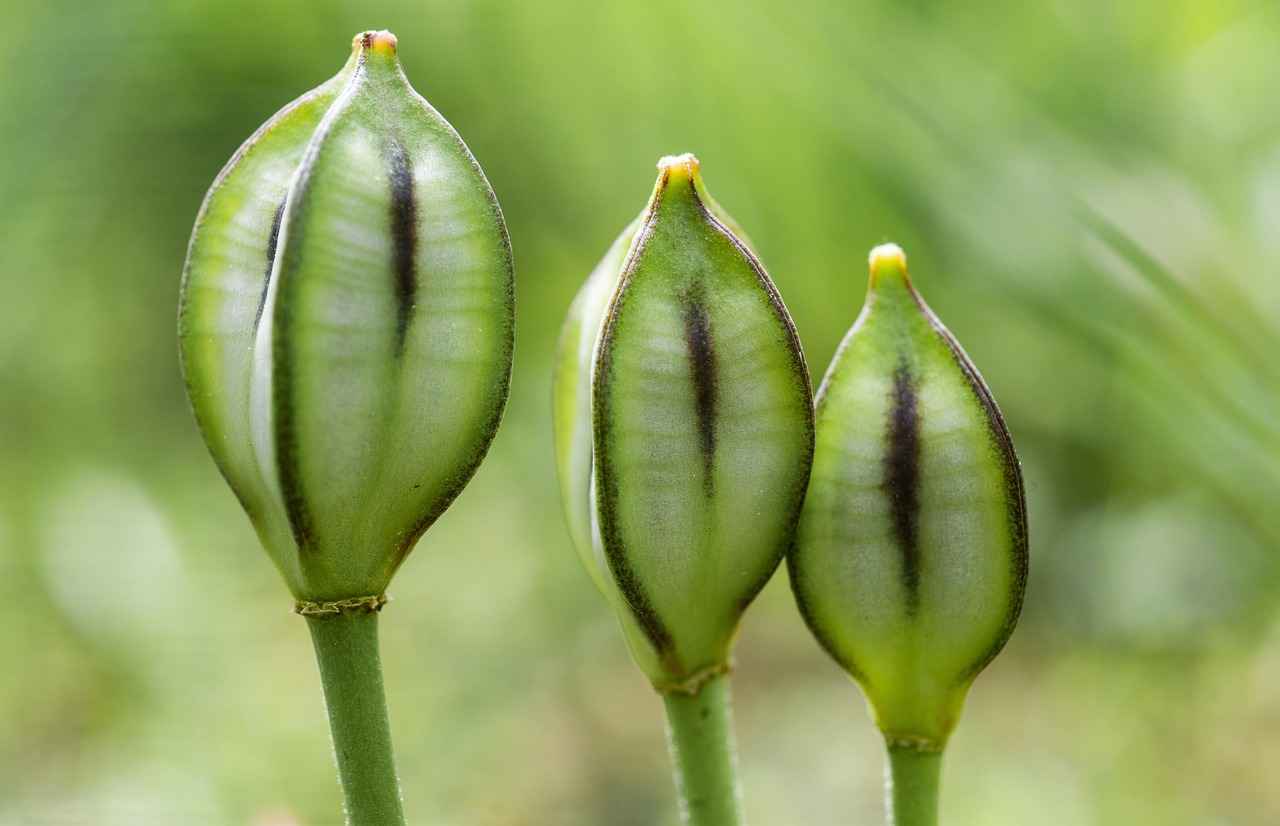This article delves into where you can purchase chia seeds at Walmart, what factors to consider when buying them, and the multitude of health benefits they offer. With this information, you can make informed choices that cater to your dietary needs.
What Are Chia Seeds?
Chia seeds are tiny, nutrient-rich seeds derived from the Salvia hispanica plant. They are celebrated for their impressive nutritional profile, which includes high levels of fiber, protein, and omega-3 fatty acids, making them a popular choice among health enthusiasts.
Health Benefits of Chia Seeds
- Improved Digestion: The high fiber content in chia seeds promotes digestive health, helping to regulate bowel movements.
- Enhanced Heart Health: Rich in omega-3 fatty acids, chia seeds can contribute to lower cholesterol levels and improved cardiovascular function.
- Weight Management Support: Their ability to absorb water and expand can help you feel fuller for longer, aiding in weight control.
Rich in Nutrients
Chia seeds are an excellent source of essential nutrients. They are particularly rich in calcium, magnesium, and various antioxidants, all of which play vital roles in maintaining overall health.
High in Omega-3 Fatty Acids
These seeds are especially notable for their high content of alpha-linolenic acid (ALA), a type of omega-3 fatty acid that is known for its heart-healthy properties and ability to reduce inflammation.
Supports Digestive Health
Thanks to their high fiber content, chia seeds can significantly aid in digestion, promoting a healthy gut and regular bowel function.
How to Use Chia Seeds
Chia seeds are incredibly versatile. They can be added to smoothies, oatmeal, yogurt, and even baked goods. Their unique texture allows them to enhance various dishes while providing a nutritional boost.
Where to Buy Chia Seeds at Walmart
Walmart is a convenient destination for purchasing chia seeds, offering a range of brands and types. Here’s what you need to know:
In-Store Availability
Chia seeds can typically be found in the health food aisle or the baking section of Walmart stores. It’s advisable to check local stock to ensure availability.
Online Shopping Options
For added convenience, Walmart’s website allows you to browse and purchase chia seeds online. This is particularly useful for those who prefer home delivery or want to check product availability before heading to the store.
What to Look For When Buying Chia Seeds
When selecting chia seeds, consider the following factors to ensure you choose a quality product:
Quality and Source
Opt for organic, non-GMO chia seeds to guarantee a high-quality product. Look for certifications that attest to the purity and safety of the seeds.
Packaging and Storage
Proper packaging is essential for maintaining the freshness of chia seeds. Choose products that are sealed in airtight containers to prolong shelf life and prevent spoilage.
Chia Seeds vs. Other Superfoods
Understanding how chia seeds compare to other superfoods can help you make informed dietary choices:
Chia Seeds vs. Flaxseeds
While both chia seeds and flaxseeds are rich in omega-3 fatty acids, chia seeds provide more fiber and have a longer shelf life, making them a more convenient option.
Chia Seeds vs. Hemp Seeds
Hemp seeds are higher in protein, but chia seeds offer more fiber and are easier to incorporate into a variety of recipes, providing diverse nutritional benefits.

What Are Chia Seeds?
Chia seeds, derived from the Salvia hispanica plant, have gained immense popularity in the health community due to their impressive nutrient profile. These tiny seeds, often overlooked, are a powerhouse of essential nutrients that can significantly enhance your diet. But what exactly makes chia seeds so special?
Chia seeds are small, oval-shaped seeds that come from a flowering plant in the mint family. They are predominantly grown in Mexico and Guatemala, where they have been a staple for centuries. Rich in fiber, protein, and omega-3 fatty acids, chia seeds are often classified as a superfood due to their numerous health benefits. When soaked in liquid, they can absorb up to 12 times their weight, forming a gel-like consistency that can be used in various recipes.
The term “superfood” is often used to describe foods that are exceptionally high in nutrients. Chia seeds fit this description perfectly. They are packed with:
- Fiber: A single ounce (28 grams) of chia seeds contains about 11 grams of fiber, which can aid in digestion and promote a feeling of fullness.
- Protein: Chia seeds provide a complete protein source, containing all nine essential amino acids, making them an excellent choice for vegetarians and vegans.
- Omega-3 Fatty Acids: They are particularly rich in alpha-linolenic acid (ALA), an essential fatty acid that supports heart health and reduces inflammation.
Incorporating chia seeds into your diet can lead to numerous health benefits:
- Improved Digestion: The high fiber content in chia seeds promotes regular bowel movements and supports gut health.
- Heart Health: Omega-3 fatty acids contribute to lower cholesterol levels and improved cardiovascular health.
- Weight Management: The combination of protein and fiber helps control appetite, making chia seeds a great addition to weight loss diets.
Chia seeds are incredibly versatile and can be added to a variety of dishes:
- Add them to smoothies for a nutritional boost.
- Sprinkle on yogurt or oatmeal for added texture and nutrients.
- Use them in baking recipes, such as muffins or bread, for enhanced fiber content.
- Make a chia pudding by soaking them in milk or a dairy alternative overnight.
Chia seeds are widely available at grocery stores, health food stores, and online retailers. When purchasing, look for:
- Organic Options: Ensure that the chia seeds are certified organic to avoid pesticides and other harmful chemicals.
- Quality Packaging: Choose seeds that are packaged in airtight containers to maintain freshness.
In conclusion, chia seeds are not just a trendy food but a nutritional powerhouse that can provide numerous health benefits. Their versatility in cooking and baking, combined with their rich nutrient profile, makes them an excellent addition to any diet.

Health Benefits of Chia Seeds
Chia seeds have gained significant popularity in recent years, known for their impressive nutritional profile and numerous health benefits. These tiny seeds, derived from the Salvia hispanica plant, are not only versatile but also packed with essential nutrients that can enhance your overall well-being. Let’s explore the in detail.
- Improved Digestion: Chia seeds are an excellent source of dietary fiber, containing about 11 grams of fiber per ounce. This high fiber content aids in digestion by promoting regular bowel movements and preventing constipation. Additionally, fiber helps to maintain a healthy gut microbiome, which is crucial for overall digestive health.
- Enhanced Heart Health: The omega-3 fatty acids found in chia seeds, particularly alpha-linolenic acid (ALA), contribute to heart health by reducing inflammation and lowering cholesterol levels. Regular consumption of chia seeds can help decrease the risk of heart disease and improve cardiovascular function.
- Weight Management Support: Incorporating chia seeds into your diet can assist with weight management. Their high fiber content promotes a feeling of fullness, which can reduce overall calorie intake. Moreover, chia seeds can absorb up to 12 times their weight in water, expanding in your stomach and helping to curb appetite.
- Rich in Nutrients: Chia seeds are not just fiber; they are also rich in essential nutrients such as calcium, magnesium, phosphorus, and antioxidants. These nutrients play vital roles in bone health, energy production, and protecting the body from oxidative stress.
The soluble fiber in chia seeds forms a gel-like substance when mixed with water, which can help slow down digestion. This process allows for better nutrient absorption and can stabilize blood sugar levels. The prebiotic properties of chia seeds also promote the growth of beneficial gut bacteria, further enhancing digestive health.
Chia seeds are often categorized as a superfood due to their dense nutrient profile. They are an excellent source of plant-based protein, making them a valuable addition to vegetarian and vegan diets. Additionally, their high antioxidant content helps combat free radicals, reducing the risk of chronic diseases.
Incorporating chia seeds into your meals is easy and versatile. Here are a few practical ways to enjoy them:
- Add chia seeds to smoothies for an extra nutrient boost.
- Sprinkle them on yogurt or oatmeal for added texture and nutrition.
- Use them as an egg substitute in baking by mixing 1 tablespoon of chia seeds with 2.5 tablespoons of water and letting it sit until it thickens.
- Make chia pudding by soaking chia seeds in milk or a milk alternative overnight, then flavoring with fruits, honey, or vanilla.
When compared to other seeds, such as flaxseeds and hemp seeds, chia seeds stand out due to their high fiber content and ability to absorb liquid. While flaxseeds are also rich in omega-3s, they must be ground to access their nutrients, whereas chia seeds can be consumed whole. This makes chia seeds a more convenient option for many people.
In summary, the health benefits of chia seeds are extensive, making them a valuable addition to a balanced diet. From supporting digestion and heart health to aiding in weight management, these tiny seeds pack a powerful punch of nutrition. Embracing chia seeds in your daily meals can lead to improved health outcomes and overall wellness.
Rich in Nutrients
Chia seeds have gained immense popularity in recent years, often hailed as a superfood due to their remarkable nutritional profile. These tiny seeds, derived from the Salvia hispanica plant, are not only versatile but also packed with essential nutrients that can significantly enhance your overall health.
Chia seeds are incredibly rich in fiber, protein, and omega-3 fatty acids. Just two tablespoons of chia seeds contain:
- 5 grams of protein
- 11 grams of fiber
- 2.5 grams of omega-3 fatty acids
- 18% of the recommended daily intake of calcium
- 24% of the recommended daily intake of magnesium
One of the standout features of chia seeds is their high calcium content. This mineral is crucial for maintaining strong bones and teeth. A diet rich in calcium can help prevent osteoporosis and other bone-related issues. Chia seeds provide a plant-based source of calcium, making them an excellent option for those following a vegan or vegetarian diet.
Magnesium is another essential mineral found in chia seeds. It plays a vital role in various bodily functions, including:
- Regulating muscle and nerve function
- Supporting immune health
- Maintaining heart rhythm
Incorporating chia seeds into your diet can help you meet your magnesium needs, contributing to overall wellness.
Chia seeds are also rich in antioxidants, which help combat oxidative stress in the body. Antioxidants protect cells from damage caused by free radicals, potentially lowering the risk of chronic diseases such as heart disease and cancer. The presence of these powerful compounds in chia seeds makes them a valuable addition to a balanced diet.
Adding chia seeds to your meals is simple and versatile. Here are some practical ways to enjoy their benefits:
- Add them to smoothies for a nutrient boost.
- Mix them into yogurt or oatmeal.
- Use them as an egg substitute in baking (1 tablespoon of chia seeds mixed with 2.5 tablespoons of water equals one egg).
- Sprinkle them on salads for added crunch.
While chia seeds are generally safe to consume, it’s important to stay mindful of portion sizes. Due to their high fiber content, consuming too many chia seeds at once can lead to digestive discomfort. It’s advisable to start with small amounts and gradually increase your intake while ensuring you drink enough water.
In conclusion, chia seeds are a nutrient-dense addition to any diet. Their impressive profile of calcium, magnesium, and antioxidants, combined with their versatility in recipes, makes them a fantastic choice for enhancing health and wellness. Whether you’re looking to boost your nutrient intake or simply enjoy their unique texture, chia seeds are worth considering as a staple in your pantry.
High in Omega-3 Fatty Acids
Chia seeds, often hailed as a superfood, are not only versatile but also incredibly nutritious. Among their many health benefits, one of the most significant attributes is their high content of omega-3 fatty acids, particularly alpha-linolenic acid (ALA). This essential fatty acid plays a crucial role in maintaining heart health and reducing inflammation throughout the body.
Omega-3 fatty acids are vital for various bodily functions, including brain health, heart health, and reducing inflammation. ALA, the type of omega-3 found in chia seeds, is particularly essential as the body cannot produce it on its own. Therefore, it must be obtained through diet. Consuming foods rich in ALA, like chia seeds, can lead to numerous health benefits.
Research has shown that ALA can help lower cholesterol levels, reduce blood pressure, and improve overall heart health. By incorporating chia seeds into your diet, you can significantly increase your intake of this beneficial fatty acid. Studies suggest that a regular intake of omega-3s can decrease the risk of heart disease and stroke, making chia seeds a smart addition to a heart-healthy diet.
Chronic inflammation is linked to various health issues, including arthritis, heart disease, and even cancer. The anti-inflammatory properties of ALA can help mitigate these risks. Regular consumption of chia seeds may assist in lowering inflammatory markers in the body, thereby promoting better overall health. By adding chia seeds to your meals, you can take proactive steps towards managing inflammation.
Incorporating chia seeds into your diet is easy and delicious. Here are some practical ways to enjoy their benefits:
- Smoothies: Blend chia seeds into your favorite smoothie for added texture and nutrition.
- Oatmeal: Sprinkle chia seeds on top of your morning oatmeal or mix them in for an extra nutrient boost.
- Baking: Add chia seeds to your baking recipes, such as muffins or bread, for enhanced health benefits.
- Salads: Toss chia seeds into salads for a crunchy texture and nutritional enhancement.
While chia seeds are generally safe for most people, it’s essential to consume them in moderation. Due to their high fiber content, excessive intake may lead to digestive issues. It’s advisable to gradually introduce chia seeds into your diet and ensure adequate hydration, as they can absorb a significant amount of water.
Chia seeds are an excellent source of ALA, making them a valuable addition to a balanced diet. Their heart health benefits and anti-inflammatory properties make them a powerhouse of nutrition. By incorporating chia seeds into your meals, you can enjoy their myriad health benefits while enhancing the flavor and texture of your dishes. Whether you choose to sprinkle them on salads, blend them into smoothies, or bake them into your favorite treats, chia seeds are a simple yet effective way to boost your omega-3 intake.
Supports Digestive Health
Chia seeds are not only a popular superfood but also a powerful ally for your digestive health. Their high fiber content plays a crucial role in promoting regular bowel movements and preventing constipation. When consumed, chia seeds can absorb up to 10-12 times their weight in water, forming a gel-like substance that helps to soften stool and facilitate its passage through the digestive tract.
Incorporating chia seeds into your diet can lead to improved gut health in several ways:
- Promotes Regularity: The soluble fiber in chia seeds adds bulk to your stool, making it easier to pass. This can be particularly beneficial for individuals suffering from irregular bowel movements.
- Supports Healthy Gut Flora: A healthy gut is home to a diverse range of beneficial bacteria. The fiber in chia seeds acts as a prebiotic, providing nourishment for these good bacteria, which can help maintain a balanced gut microbiome.
- Reduces Inflammation: Chronic inflammation in the gut can lead to various digestive disorders. Chia seeds are rich in antioxidants, which can help combat oxidative stress and reduce inflammation, promoting overall gut health.
- Enhances Nutrient Absorption: A well-functioning digestive system is essential for the absorption of nutrients. By promoting a healthy gut environment, chia seeds can help ensure that your body effectively absorbs vitamins and minerals from the foods you consume.
To maximize the digestive benefits of chia seeds, consider the following tips:
1. Start Slow: If you are new to chia seeds, begin with a small amount (1 tablespoon) and gradually increase to avoid digestive discomfort.2. Soak Before Consumption: Soaking chia seeds in water or another liquid for at least 30 minutes before eating can enhance their gel-forming properties and make them easier to digest.3. Incorporate into Meals: Chia seeds can be added to smoothies, yogurt, oatmeal, or baked goods for a nutritious boost.
In conclusion, the incorporation of chia seeds into your daily diet can significantly enhance digestive health. Their unique properties not only aid in regularity but also support a healthy gut environment, making them an excellent choice for anyone looking to improve their digestive wellness. With their versatility and ease of use, chia seeds can be a simple yet effective addition to meals, promoting overall health and vitality.
How to Use Chia Seeds
Chia seeds are renowned for their versatility in the kitchen, making them a fantastic addition to a variety of recipes. Their unique texture and impressive nutritional profile allow them to enhance meals in numerous ways. In this section, we will explore the various methods of incorporating chia seeds into your diet, ensuring you enjoy their benefits while adding creativity to your culinary endeavors.
- In Smoothies: Chia seeds can be easily blended into smoothies, providing a nutrient boost without altering the flavor. Their ability to absorb liquid creates a thicker texture, making your smoothie more satisfying.
- Baked Goods: Incorporating chia seeds into muffins, breads, and pancakes not only enhances the nutritional value but also adds a delightful crunch. They can be used whole or ground, depending on your preference.
- As a Topping: Sprinkle chia seeds over salads, yogurt, or oatmeal. This simple addition can elevate the dish while providing a dose of fiber and protein.
- Chia Pudding: Combine chia seeds with your choice of milk or a dairy-free alternative, add sweeteners and flavors, and let it sit overnight. The result is a creamy, nutritious pudding that can be enjoyed for breakfast or as a snack.
- In Soups and Stews: Adding chia seeds to soups and stews can enhance their texture and nutritional profile. They can help thicken the broth while providing essential nutrients.
Chia seeds are not only versatile, but they also offer numerous health benefits that can be advantageous in your cooking. Here are some reasons why you should consider using chia seeds:
- High in Nutrients: Chia seeds are packed with essential nutrients, including fiber, protein, and omega-3 fatty acids. This makes them an excellent addition to any meal.
- Supports Digestive Health: The high fiber content in chia seeds aids digestion and promotes a healthy gut, making them a great choice for those looking to improve their digestive health.
- Weight Management: Their ability to absorb liquid and expand in the stomach can promote a feeling of fullness, which may help with weight management efforts.
To enjoy the full benefits of chia seeds, proper storage is essential. Here are some tips:
- Airtight Containers: Store chia seeds in airtight containers to prevent exposure to moisture and air, which can lead to spoilage.
- Cool, Dark Places: Keep your chia seeds in a cool, dark place, such as a pantry or cupboard, away from direct sunlight.
- Refrigeration: For longer shelf life, consider refrigerating chia seeds, especially if you buy them in bulk.
Absolutely! Chia seeds are vegan and gluten-free, making them suitable for a wide range of dietary preferences. They can serve as an egg substitute in baking by mixing one tablespoon of chia seeds with three tablespoons of water, allowing it to sit until it forms a gel-like consistency. This makes chia seeds an excellent option for those following plant-based diets or gluten-free lifestyles.
Incorporating chia seeds into your meals can be both fun and beneficial. Whether you’re looking to enhance the nutritional value of your dishes or simply want to experiment with new textures, chia seeds are a fantastic choice that can seamlessly fit into any meal.

Where to Buy Chia Seeds at Walmart
Chia seeds have gained immense popularity among health enthusiasts due to their nutritional benefits and versatility in cooking. If you’re looking to incorporate these tiny powerhouses into your diet, Walmart is a convenient place to find a variety of chia seed brands and types. This article will guide you on where to buy chia seeds at Walmart, both in-store and online, as well as what to consider when making your purchase.
Walmart offers a broad selection of chia seeds, catering to different preferences and dietary needs. Whether you prefer shopping in-store or online, there are several options available to you.
When visiting a Walmart store, you can typically find chia seeds in the health food aisle or the baking section. These locations are strategically chosen to make it easier for health-conscious shoppers to locate superfoods. If you’re unsure about the availability, it’s always a good idea to check with customer service or use the Walmart app to confirm stock levels at your local store.
For those who prefer the convenience of shopping from home, Walmart’s online platform is an excellent resource. You can browse through various brands of chia seeds, compare prices, and read customer reviews to make an informed decision. Additionally, purchasing online allows you to take advantage of home delivery or store pickup options, saving you time and effort.
When selecting chia seeds, several factors should be considered to ensure you’re getting the best product for your needs.
Always look for organic and non-GMO chia seeds to guarantee a high-quality product. Certifications from reputable organizations can provide assurance of purity and safety. Additionally, consider the source of the chia seeds, as some brands may prioritize sustainable farming practices.
The packaging of chia seeds is crucial for maintaining their freshness. Opt for seeds that are sealed in airtight containers, which help prolong shelf life and prevent spoilage. Pay attention to the expiration date to ensure you’re purchasing fresh seeds.
Understanding how chia seeds compare to other superfoods can help you make informed dietary choices. For instance, while both chia seeds and flaxseeds are rich in omega-3 fatty acids, chia seeds offer a higher fiber content and a longer shelf life. Similarly, compared to hemp seeds, chia seeds provide more fiber and can be easily incorporated into various recipes.
Incorporating chia seeds into your diet can lead to numerous health benefits, including improved digestion, enhanced heart health, and potential weight management support. Their high fiber and protein content make them a valuable addition to meals.
Chia seeds are incredibly versatile. You can add them to smoothies, yogurt, oatmeal, or baked goods. They can also be used to create chia pudding, a popular breakfast option. Their unique texture and nutritional profile make them an excellent ingredient for enhancing various dishes.
In conclusion, whether you choose to shop in-store or online, Walmart provides a convenient option for purchasing chia seeds. By considering factors such as quality, packaging, and the numerous health benefits, you can make an informed decision that aligns with your dietary needs.
In-Store Availability
When it comes to purchasing chia seeds at Walmart, understanding their in-store availability is crucial for a seamless shopping experience. Chia seeds have gained immense popularity due to their numerous health benefits, and knowing where to find them in the store can save you time and effort.
Chia seeds can typically be found in two main sections of Walmart:
- Health Food Aisle: This section often contains a variety of health products, including superfoods like chia seeds. Look for brands that emphasize organic or non-GMO options for the best quality.
- Baking Aisle: You may also find chia seeds alongside other baking ingredients such as flour and baking mixes. This is a great spot to check if you’re looking for chia seeds to incorporate into your baking recipes.
Before heading out to Walmart, it’s wise to check local stock availability. Walmart’s website allows customers to search for specific products and see if they are in stock at their nearest store. Here’s how you can do it:
- Visit the Walmart website or use the Walmart app.
- Type “chia seeds” in the search bar.
- Select your local store to view real-time stock information.
This feature can save you from making a trip to the store only to find that the chia seeds you want are out of stock.
Walmart typically offers a variety of chia seed options, including:
- Whole Chia Seeds: These are the most common form and can be used in smoothies, puddings, and baked goods.
- Ground Chia Seeds: Some brands offer ground chia seeds, which can be easier to digest and can be used as a thickening agent in recipes.
- Flavored Chia Seeds: Occasionally, you might find flavored varieties that can add a unique twist to your meals.
To enhance your shopping experience, consider these tips:
- Ask Store Associates: If you’re having trouble locating chia seeds, don’t hesitate to ask a store associate for assistance. They can direct you to the correct aisle.
- Check Expiration Dates: When you find chia seeds, always check the expiration date on the packaging to ensure freshness.
- Compare Prices: Different brands may vary in price. Take a moment to compare options to find the best deal.
For those who prefer the convenience of online shopping, Walmart’s website is a valuable resource. You can browse a wide selection of chia seeds and read product descriptions and customer reviews before making a purchase. Additionally, consider the following:
- Home Delivery: If you prefer not to visit the store, you can opt for home delivery, which saves time and effort.
- Store Pickup: You can also select items online and choose to pick them up at your local Walmart, ensuring they are ready for you when you arrive.
By understanding where to find chia seeds in Walmart and utilizing the available resources, you can easily incorporate this nutritious superfood into your diet.
Online Shopping Options
In the digital age, online shopping has transformed the way we purchase everyday items, including health foods like chia seeds. Walmart’s website serves as a convenient platform for consumers looking to buy these nutrient-packed seeds from the comfort of their homes. This article delves into the benefits of shopping online for chia seeds, the process of navigating Walmart’s website, and what to consider when making your purchase.
Shopping for chia seeds online offers several advantages. Firstly, it provides the convenience of home delivery, allowing you to receive your products right at your doorstep without the hassle of visiting a store. This is particularly beneficial for individuals with busy schedules or those who may have mobility issues. Additionally, online shopping allows you to compare prices and explore various brands and types of chia seeds easily.
Walmart’s website is designed to be user-friendly, making it simple to find chia seeds. Here’s a step-by-step guide:
- Visit the Walmart website: Start by going to Walmart.com.
- Use the search bar: Type “chia seeds” into the search bar at the top of the page and hit enter.
- Filter your results: Use the filtering options on the left side of the page to narrow down your choices by brand, price, and type.
- Read product descriptions: Click on individual products to view detailed descriptions, nutritional information, and customer reviews.
- Add to cart: Once you find the chia seeds you want, select the quantity and add them to your cart.
- Checkout: Proceed to checkout, where you can choose shipping options or select in-store pickup.
While shopping online is convenient, there are a few important factors to keep in mind:
- Quality: Look for organic and non-GMO chia seeds to ensure you are purchasing a high-quality product. Check for certifications that indicate the seeds are free from harmful additives.
- Packaging: Ensure that the chia seeds are packaged in airtight containers to maintain freshness. This is crucial for preserving their nutritional value.
- Price: Compare prices across different brands to ensure you are getting the best deal. Keep an eye out for discounts or bulk purchase options.
- Delivery options: Review the shipping policies, including delivery times and costs, to avoid any surprises at checkout.
Before making a purchase, take advantage of the customer review section on Walmart’s website. Reading reviews can provide insights into the quality and taste of the chia seeds, as well as the overall shopping experience. Look for products with high ratings and positive feedback to ensure you are making a wise choice.
One of the standout features of shopping for chia seeds on Walmart’s website is the option for home delivery. This service is particularly useful for those who prefer to avoid crowded stores or have difficulty carrying heavy items. With just a few clicks, you can have chia seeds delivered directly to your home, ready to be incorporated into your meals.
In summary, Walmart’s online shopping platform provides an efficient and user-friendly way to purchase chia seeds. By considering factors such as quality, packaging, and customer feedback, you can make informed decisions that align with your dietary needs and preferences.

What to Look For When Buying Chia Seeds
When it comes to purchasing chia seeds, making an informed choice is crucial. Chia seeds, derived from the Salvia hispanica plant, have gained popularity as a superfood due to their numerous health benefits. However, not all chia seeds are created equal. Understanding what to look for when buying these tiny powerhouses can significantly affect your overall experience and health outcomes.
- Quality: The quality of chia seeds is paramount. Look for seeds that are organic and non-GMO. These labels ensure that the seeds have been grown without harmful pesticides and are free from genetic modifications. Additionally, check for certifications from reputable organizations to guarantee the purity and safety of the seeds.
- Source and Brand Reputation: Consider the source of your chia seeds. Reputable brands often provide transparency regarding their sourcing practices. Research brands to find those with a strong reputation for quality and sustainability. Customer reviews and expert opinions can also offer valuable insights.
- Packaging: Proper packaging plays a vital role in maintaining the freshness of chia seeds. Opt for seeds that are packaged in airtight containers to prevent moisture and air exposure, which can lead to spoilage. Vacuum-sealed bags are an excellent choice for preserving the seeds’ quality over time.
- Price: While price shouldn’t be the sole determining factor, it’s important to find a balance between cost and quality. Higher-priced chia seeds may offer better quality and sourcing practices, but there are also affordable options that provide good value. Compare prices across different brands to find the best deal without compromising quality.
- Color and Texture: When examining chia seeds, look for a consistent color and texture. High-quality chia seeds should be shiny and have a uniform appearance. Avoid seeds that appear dull or have any discoloration, as this may indicate poor quality or age.
Incorporating chia seeds into your diet can be easy and enjoyable. They can be added to smoothies, yogurt, or oatmeal for a nutritional boost. Additionally, chia seeds can be used as a thickening agent in recipes or even as a replacement for eggs in vegan baking. Their ability to absorb water and form a gel-like consistency makes them versatile in various culinary applications.
Understanding the health benefits of chia seeds can enhance your motivation to include them in your diet. These tiny seeds are rich in omega-3 fatty acids, which are essential for heart health. They also contain significant amounts of fiber, promoting digestive health and helping you feel fuller for longer. Furthermore, chia seeds are packed with antioxidants, which can help combat oxidative stress in the body.
By focusing on quality, packaging, price, and proper usage, you can ensure that you are making the best choice when purchasing chia seeds. These small yet powerful seeds can significantly enhance your health and well-being when incorporated into a balanced diet.
Quality and Source
When it comes to purchasing chia seeds, quality and source are paramount. Ensuring that you select premium seeds not only elevates your culinary experience but also maximizes the health benefits these tiny powerhouses offer. In this section, we will delve into what makes chia seeds a great addition to your diet and how to choose the best options available.
Opting for organic chia seeds is crucial for several reasons:
- Purity: Organic seeds are grown without harmful pesticides or herbicides, ensuring a cleaner product.
- Nutritional Value: Studies suggest that organic seeds may have higher nutrient levels compared to their non-organic counterparts.
- Environmental Impact: Choosing organic supports sustainable farming practices that benefit the ecosystem.
In addition to being organic, look for chia seeds that are labeled as non-GMO. This certification guarantees that the seeds have not been genetically modified, which is important for maintaining their natural integrity. Non-GMO seeds are often associated with better taste and higher nutritional quality.
When shopping for chia seeds, there are several ways to ensure you are purchasing a high-quality product:
- Check for Certifications: Look for products that have certifications from reputable organizations. These certifications often include USDA Organic and Non-GMO Project Verified.
- Read Labels: Pay attention to the ingredient list. The best chia seeds should contain only chia seeds, with no additives or preservatives.
- Examine Packaging: Quality chia seeds should be packaged in airtight containers to preserve freshness. Avoid products that come in bulk bins, as they may be exposed to air and moisture.
While Walmart is a convenient option, it’s important to know where to find the best chia seeds in-store or online. Here are some tips:
- In-Store: Check the health food aisle or the organic section of Walmart. Look for trusted brands that emphasize quality on their packaging.
- Online: Walmart’s website allows you to read customer reviews and compare different brands. This can help you make an informed decision before making a purchase.
Once you’ve purchased your chia seeds, proper storage is essential for maintaining their quality:
- Airtight Containers: Store chia seeds in a cool, dark place in an airtight container to prevent oxidation.
- Refrigeration: For long-term storage, consider keeping them in the refrigerator or freezer. This can help extend their shelf life.
In summary, the quality and source of chia seeds are critical factors that can significantly influence your health and culinary experiences. By choosing organic, non-GMO seeds and verifying their quality through certifications and proper packaging, you can ensure that you are making a wise investment in your health. Whether you buy them in-store or online, following these guidelines will help you enjoy the full benefits of this remarkable superfood.
Packaging and Storage
Proper packaging and storage of chia seeds play a vital role in preserving their quality and extending their shelf life. When purchasing chia seeds, it’s essential to consider how they are packaged, as this can significantly impact their freshness and nutritional value.
The packaging of chia seeds is crucial for several reasons. First and foremost, air exposure can lead to oxidation, which diminishes the seeds’ nutritional benefits. When chia seeds are stored in airtight containers, they are protected from moisture and air, which can otherwise cause spoilage and rancidity.
- Airtight Sealing: Choose chia seeds that come in vacuum-sealed bags or containers with tight-fitting lids. This ensures that air and moisture cannot penetrate the packaging.
- Opaque Containers: Light can also degrade the quality of chia seeds. Look for packaging that is dark or opaque to shield the seeds from light exposure.
- Expiration Dates: Always check for a clear expiration date on the packaging. Fresh seeds will have a longer shelf life, so opt for those with the latest dates.
Even after purchasing chia seeds in optimal packaging, proper storage at home is essential for maintaining their freshness. Here are some tips:
- Cool, Dry Place: Store chia seeds in a cool, dry place away from direct sunlight. A pantry or cupboard is often ideal.
- Refrigeration: For even longer shelf life, consider storing chia seeds in the refrigerator. This can help prevent any potential spoilage, especially if you buy in bulk.
- Use Airtight Containers: If the original packaging is not airtight, transfer the seeds to a glass jar or a resealable bag that can be sealed tightly.
When stored correctly in airtight, opaque containers, chia seeds can last for up to two years without losing their nutritional value. However, it’s always best to check for any signs of spoilage, such as an off smell or changes in texture, before consumption.
By choosing the right packaging and storing chia seeds properly, you can enjoy several benefits:
- Maximized Nutritional Value: Fresh chia seeds retain their high levels of omega-3 fatty acids, fiber, and antioxidants.
- Cost-Effective: Preventing spoilage means you can enjoy your seeds for longer, making your purchase more economical.
- Enhanced Flavor: Fresh seeds have a more pleasant taste and texture, adding better flavor to your meals.
In summary, investing in high-quality packaging and practicing proper storage techniques are essential for maintaining the freshness of chia seeds. By following these guidelines, you can ensure that you are getting the maximum health benefits from this nutritious superfood.

Chia Seeds vs. Other Superfoods
When it comes to maintaining a healthy diet, the term superfood often comes up, referring to foods that are exceptionally nutrient-dense and beneficial for health. Among these, chia seeds have gained significant popularity. However, understanding how they compare to other superfoods can help you make informed dietary choices.
Both chia seeds and flaxseeds are renowned for their high content of omega-3 fatty acids. While flaxseeds are rich in lignans and have a higher protein content, chia seeds stand out with their impressive fiber content and longer shelf life. This makes chia seeds a more convenient option for many. Additionally, chia seeds can absorb up to 12 times their weight in water, promoting hydration and satiety.
When comparing chia seeds to hemp seeds, the differences become apparent. Hemp seeds are higher in protein, making them an excellent choice for those looking to boost their protein intake. However, chia seeds offer a unique advantage with their high fiber content, which aids in digestion and helps maintain a healthy gut. Incorporating both into your diet can provide a balanced intake of nutrients.
Quinoa is often hailed as a complete protein source, containing all nine essential amino acids. While chia seeds are not a complete protein, they are still a valuable source of protein and rich in other nutrients. Quinoa also provides more carbohydrates, which may be beneficial for those needing energy. However, chia seeds are easier to incorporate into a variety of dishes, from smoothies to baked goods, enhancing their versatility.
Acai berries are celebrated for their high antioxidant content, particularly anthocyanins, which help combat oxidative stress. In contrast, chia seeds offer a broader range of nutrients, including fiber, protein, and healthy fats. While both are beneficial, incorporating chia seeds can offer a more comprehensive nutrient profile in your diet.
Spirulina, a blue-green algae, is known for its high protein content and various vitamins and minerals. On the other hand, chia seeds provide a more balanced nutrient profile with fiber and omega-3 fatty acids. While spirulina may be more concentrated in certain nutrients, chia seeds are easier to use in everyday meals, making them a practical choice for many.
In conclusion, while chia seeds share the spotlight with various other superfoods, their unique benefits make them a valuable addition to any diet. Their high fiber content, omega-3 fatty acids, and versatility in recipes set them apart. Understanding the differences between chia seeds and other superfoods can empower you to make better dietary choices tailored to your health needs.
Chia Seeds vs. Flaxseeds
When it comes to superfoods, chia seeds and flaxseeds often come to mind as popular options for health-conscious consumers. Both seeds are celebrated for their nutritional benefits, particularly their content of omega-3 fatty acids, but they also have distinct characteristics that make them unique. Understanding these differences can help you make informed choices about which seed to incorporate into your diet.
Chia seeds come from the Salvia hispanica plant, native to Central America. These tiny seeds are rich in nutrients, including fiber, protein, and various essential minerals. On the other hand, flaxseeds, derived from the Linum usitatissimum plant, are also packed with nutrients but are particularly known for their high levels of lignans, which have antioxidant properties.
| Nutrient | Chia Seeds (per 28g) | Flaxseeds (per 28g) |
|---|---|---|
| Calories | 138 | 150 |
| Protein | 4.7g | 5.2g |
| Fiber | 10.6g | 7.6g |
| Omega-3 Fatty Acids | 5g (ALA) | 6.3g (ALA) |
- High Fiber Content: Chia seeds contain more fiber than flaxseeds, which can aid in digestion and promote a feeling of fullness.
- Hydration: When soaked in liquid, chia seeds can absorb up to 12 times their weight, helping to keep you hydrated.
- Longer Shelf Life: Chia seeds have a longer shelf life due to their antioxidant properties, making them a convenient pantry staple.
- Rich in Lignans: Flaxseeds are one of the best sources of lignans, which may help reduce the risk of certain cancers.
- Heart Health: The high omega-3 content in flaxseeds supports cardiovascular health and reduces inflammation.
- Hormonal Balance: Lignans in flaxseeds may help balance hormones, especially in women.
Both chia seeds and flaxseeds have their unique benefits, making them valuable additions to your diet. If you’re looking for a seed that offers more fiber and versatility, chia seeds may be the better choice. Conversely, if you’re interested in the additional antioxidant benefits provided by lignans, flaxseeds could be more suitable.
In conclusion, the choice between chia seeds and flaxseeds ultimately depends on your personal health goals and dietary preferences. Incorporating a variety of seeds into your meals can provide a broader spectrum of nutrients and health benefits.
Chia Seeds vs. Hemp Seeds
When it comes to superfoods, chia seeds and hemp seeds are often compared due to their nutritional benefits. Understanding the differences between these two seeds can help you make informed choices about incorporating them into your diet.
Chia seeds are tiny, black or white seeds derived from the Salvia hispanica plant. They are recognized for their impressive nutritional profile, which includes high levels of fiber, protein, and essential fatty acids, particularly omega-3s. Their ability to absorb water and form a gel-like consistency makes them a versatile ingredient in various recipes.
Hemp seeds, on the other hand, come from the Cannabis sativa plant. They are particularly known for their high protein content, making them a popular choice among vegetarians and vegans. These seeds also contain a good balance of omega-3 and omega-6 fatty acids, along with several vitamins and minerals.
| Nutrient | Chia Seeds (per 28g) | Hemp Seeds (per 28g) |
|---|---|---|
| Calories | 138 | 157 |
| Protein | 4.7g | 9.2g |
| Fiber | 10.6g | 1.2g |
| Omega-3 Fatty Acids | 5g | 6g |
- High Fiber Content: Chia seeds are an excellent source of dietary fiber, which aids in digestion and promotes a feeling of fullness.
- Heart Health: The omega-3 fatty acids in chia seeds can help reduce inflammation and support cardiovascular health.
- Bone Health: With a good amount of calcium, magnesium, and phosphorus, chia seeds contribute to strong bones.
- Protein Powerhouse: Hemp seeds are one of the best plant-based protein sources, making them ideal for muscle repair and growth.
- Rich in Essential Fatty Acids: The perfect ratio of omega-3 to omega-6 fatty acids in hemp seeds supports overall health.
- Skin Health: The gamma-linolenic acid (GLA) found in hemp seeds can improve skin conditions and enhance skin health.
Both chia and hemp seeds can be easily added to your meals. Here are some practical ideas:
- Add chia seeds to smoothies or yogurt for an extra nutrient boost.
- Use hemp seeds as a topping for salads or oatmeal for added crunch and protein.
- Incorporate both seeds into baked goods like muffins or energy bars.
The choice between chia seeds and hemp seeds ultimately depends on your dietary needs. If you are looking for a high-fiber option that can easily be added to various recipes, chia seeds are an excellent choice. Conversely, if you are seeking a protein-rich seed that can enhance your meals’ texture and flavor, hemp seeds may be more suitable.
In conclusion, both chia and hemp seeds offer unique nutritional benefits that can enhance your diet. By understanding the differences and how to use them, you can make better choices that align with your health goals.
Frequently Asked Questions
- What are the health benefits of chia seeds?
Chia seeds are packed with nutrients like fiber, protein, and omega-3 fatty acids. They can improve digestion, promote heart health, and assist with weight management. Incorporating them into your diet can be a game changer for your overall wellness!
- Where can I find chia seeds at Walmart?
You can typically find chia seeds in the health food aisle or the baking section at Walmart. If you prefer shopping online, Walmart’s website allows you to check availability and order them for home delivery.
- How should I store chia seeds?
To keep chia seeds fresh, store them in an airtight container in a cool, dark place. This will help maintain their nutritional value and prevent spoilage, ensuring you always have a healthy superfood on hand!
- Are there different types of chia seeds?
Yes! Chia seeds come in various forms, including whole seeds, ground chia, and even flavored varieties. Each type can be used in different recipes, so you can choose based on your taste preferences and dietary needs.
- Can chia seeds be used in baking?
Absolutely! Chia seeds can be added to baked goods like muffins and bread for an extra nutritional boost. They can also be used as a substitute for eggs in vegan recipes when mixed with water to create a gel-like consistency.












